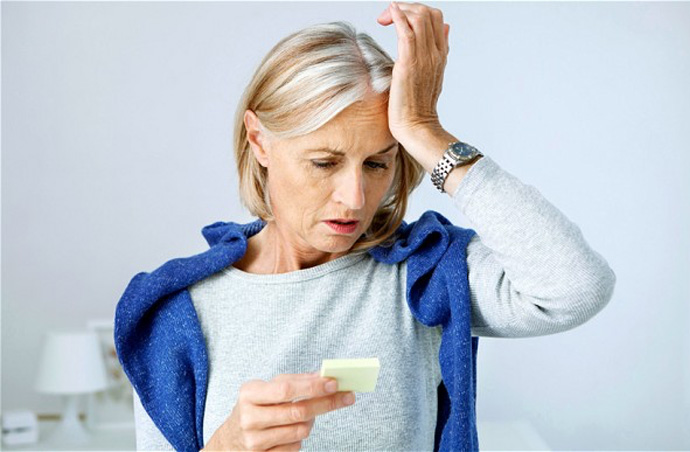 Todays guest post is from Ida Tin, CEO and co-founder of woman-led digital health startup, Clue (www.helloclue.com).
Todays guest post is from Ida Tin, CEO and co-founder of woman-led digital health startup, Clue (www.helloclue.com).
Conversations around the menopause are often avoided, with many fearing that openly discussing the basic functions of the reproductive system will offend those listening in. Personally, I find this ridiculous. It is time that we shift the conversation and take pride in our bodies. There are innumerable reasons for why we should open up the conversation about menopause, but here are my top eight:
Take back control: stop waiting and start tracking. We talk a lot about waiting when it comes to our reproductive health: waiting for your period, waiting for menopause or waiting to get pregnant. But, in fact, we don’t need to wait for menopause because we can proactively track its arrival. Peri-menopause can start up to 10 years before your last menstrual period and irregular periods are characteristic of this time in addition to the classic menopausal symptoms: hot flashes, night sweats and vaginal dryness. By understanding these signs, and discussing them with other women, you will immediately feel more in control.
There are ways to alleviate hot flashes. Yes, hot flashes happen. And for some, they happen often. There are plenty of remedies, so don’t be afraid to open up the conversation with friends and family to share creative solutions and feel more comfortable. Lifestyle changes like eating a balanced diet, exercising regularly and quitting smoking make a huge difference. Some simpler solutions include wearing layers, drinking ice water when things heat up and mediation.
Basic facts are unknown. Because menopause is a “taboo topic,” many people don’t even know that menopause is confirmed by 12 period-free months after your last period. Do you remember the exact dates of your last period? Without a period tracker, it can be tough. All the more reason for open communication, which will ensure that you know the facts and are able to identify the changes in your cycle.
Timing is different for everyone. There is no set age to start menopause, and like menstruation, the menopausal experience vary from person to person. Studies looking at the average age at menopause show that the menopausal transition (the time leading up to the last menstrual period) occurs on average at 46 with a range from 34 to 54 years of age. The final menstrual period occurs at an average age of 51, but can range from 40 and 60 years of age.
Irregular cycles are the norm. In early perimenopause, cycles may become shorter with heavier bleeding then become longer with shorter bleeding episodes as the final menstrual period approaches. Anovulatory cycles (no ovulation) are also more common. This all boils down to irregular cycle lengths and unexpected bleeding patterns.
Symptoms are different for everyone. Vasomotor symptoms (hot flashes and night sweats) and vaginal symptoms are classically associated with menopause. However, hot flashes vary in duration and frequency. 87% of people who experience hot flashes have symptoms every day, and 33% experiencing more than 10 episodes a day. There is no normal for how often you will experience these symptoms: hot flashes have been reported to last 6 months to 10 years. Vaginal symptoms are also different for everyone. 10-40% of menopausal people experience one or more symptoms of vaginal atrophy, including vaginal and/or vulvar dryness, discharge, itching and pain (not due to sex). By talking openly, and in detail about your symptoms, you will help reassure one another that there is no ‘normal’.
Because menopause can affect your sex life. Sex is a healthy part of life. The vaginal symptoms of menopause can make sex uncomfortable, so dealing with those symptoms is just as (some might argue more) important as dealing with the vasomotor symptoms. Talk to your partner, friends, and/or doctor to explore practical solutions, like safe lubricants, as well as to receive reassurance that what you are going through is normal and can be easily remedied.
Hormonal therapy is no longer the gold standard for everybody. If you seek treatment for your menopausal symptoms, your treatment will depend on what you’re experiencing. The type, dose, route of administration and timing of treatment will vary for everyone. It’s best to make an informed decision based on your data with your doctor and track your progress once taking treatment.





Amen to this, it’s not easy – to live with, to deal with and to talk to others about.
Such sensible advice. I cannot believe that my group of intelligent women friends were all caught unawares by the peri-menopause and the menopause and we’re just starting to talk about our experiences. Such a relief to find out about shared symptoms and to swap tips on managing them. Or just having a laugh about it. You’d think we might have been better prepared but it is still a subject that many people prefer not to talk about openly.
Please add Bone Density Loss to your list. I have had the joy of finding out that bone density loss is seen as “normal” and ‘acceptable” by the medical community. My scan showed sub-clinical bone loss. The scan was only done after 2 wrist fractures whilst ice skating. The could as easily have happened whilst hiking, cycling or any of the other activities I live for. The testing and treatment have only come because of the fractures. That is when I found out that I was expected to lose bone density. I had been exercising regularly and eating well, including calcium rich foods and supplements. I was shocked to learn that the Dr.s know this is not enough to stop bone loss.
I am 53 and expect to keep doing activities where falls are part of the learning, training & fun. We need to insist that no bone loss is acceptable and treatment needs to begin before fractures stop us from moving!
It is nuts that we don’t talk about this. I know there’s a lot tied up with menopause emotionally but partly because it SO isn’t talked about in the normal way of things. Also I’ve started HRT not because of particularly bad hot flushes or anything really obvious but because I was sleeping poorly and just getting a increasingly anxious and generally a bit ‘off’ over a period of time – I am now saner than I have been in years. Again, all this should be out there and being discussed.
It’s a subject that is so emotive (for different reasons) that people shy away from talking about it, so it’s really good to read about.
And yet clue doesn’t have a way of tracking menopause symptoms as standard
Hello there,
Hope you’re doing good!
I am Angela here, a writer and blogger. Recently I went through your website & observed the website is great, looks wonderful, and is very easy to follow.
I want to write for your website and can share some interesting topics with you that your audience would be interested in.
Please allow me to publish my article on your website. I will be very honored if you would allow me to write on your website.
Thanks
Angela